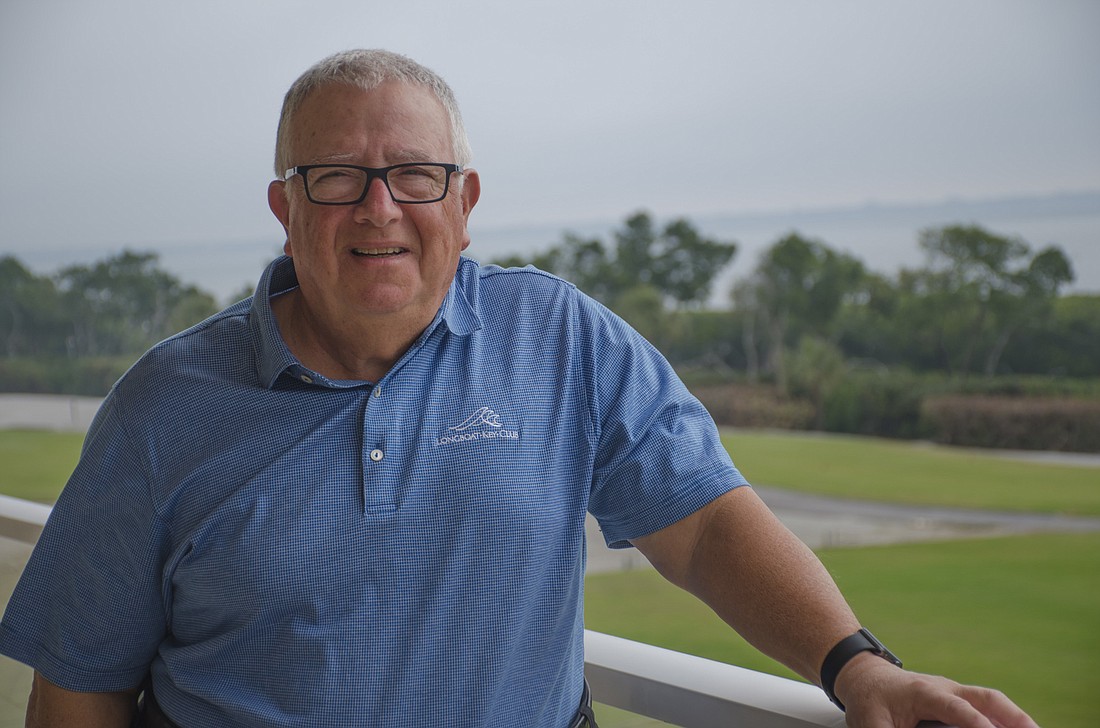- April 17, 2024
-
-
Loading

Loading

Longboat Key’s mayor doesn’t have much responsibility — much more than the other six commissioners, that is.
She or he runs meetings and signs ordinances and resolutions, but the position doesn’t offer more power over other commissioners, nor does it come with a paycheck.
It is, however, a position Terry Gans, the 71-year-old District 3 commissioner, has held for almost a year. But now he’s finished, limited by the town charter from serving any longer on the Town Commission.
So before his successor takes office and before the Town Commission votes for a new mayor, the Longboat Observer spoke with Gans about his accomplishments and insight into the role of Longboat Key mayor. The conversation has been edited for length and clarity.
We don’t have a strong-mayor government, so the mayor’s position such that we have here, bare minimum, presides at the meetings. You know, works with the town manager somewhat in discussing the agenda, but it’s still the town manager’s responsibility to set the agenda. In my position, I think I got to be mayor because people respected my thoughts on a lot of issues, and thought I’d be capable in running a meeting, and also to the extent that anyone was looking for the last little bit of guidance about how they might make up their own mind. I perceived that level of respect to help make it — they’re not sheep and they don’t follow, but I think that last little bit of guidance, I think that helped. It’s not completely an honorary position.
I think it helps guarantee fairness. I think I said in the meeting Friday [March 16], I had an inclination after P&Z, it wasn’t a determined, “This is how I’m going to vote before I hear anything.” But you’re human. You lean in one direction. But you’re also there to have facts convince you if they’re there, one way or another. Everybody has to answer to themselves. I think most people do that to some degree, I can’t swear, I’m not inside everybody’s head. This has been, despite some of the things that have been said in the campaigning, this has been a very responsible group of people. In looking at the facts, everybody looks at them through their own lenses and experiences and everything else. And listening to everybody else, then voting. People think differently, that’s OK. If every vote year in year out was 7-0, you have too much like thinking.
I wish we had completed, or even got halfway to, the redo of the zoning code in its entirety and address the problem of nonconforming properties. As I’ve expressed, I think anytime we get close, people who had inclinations one way or another on the Colony matter ... I think the question was, ‘If we go this direction on this, what does this do to how I currently feel on the property? Does that lock in a position that I think we should discuss in a different way?’ So I think until you got the Colony situation resolved, that was a block on doing the rest of the work, which is very important.
Have your own thoughts after you think about issues and listen to your colleagues and listen to the public. And if you have the right balance of those three things — always know yourself, you’ve got to start from there. If you keep those things in balance, you know, things will progress the way they should. You’re not a game show moderator. Like it or not, you’re a leader. You’ve got the gavel. That doesn’t mean you gavel people into submission, but you’re there, in some way, to be a leader, not just a facilitator. Other people see the facilitator role as the most important.
Redo the damn zoning code, but that really should be mechanical. I would say the biggest challenge, and I would say for all jurisdictions, behave in a way that it’s clear that you’re acting in the interest of those people who put you in office. There’s an inherent distrust in government, and this is a government that’s very, very close to the people. It’s not in Washington, it’s not in Tallahassee, it’s the people who live here. To continue to work in a way that builds on the existing trust and makes it stronger.
I take each day as it comes, I’m not worried about it. People say, “What are you going to do, what are you going to do?” I say, I don’t know, what I did before. You know, I’ll take care of it. I’m not going to be, “Oh my God, what am I going to do. I got to have a project.” Things, they come organically. It’ll be fine. I’m not going to haunt commission meetings. I’m not going to go on the Planning and Zoning Board. The things I’ve said about we should have new voices and new people involved, I really believe in that. Not that I’m tired or anything else, but I’ve had a wonderful opportunity to hopefully do good things that will benefit the town in the future.